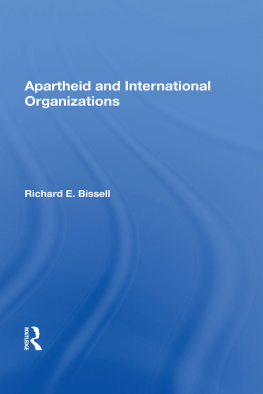Understanding industrial organisations
This book provides a critical review of the perspectives which have most influenced our understanding of industrial organisations in the period since 1945. Four main approaches are identified: systems thinking considers organisations as systems of inter-related parts; contingency theory emphasises the influence of an organisations context or environment on its structure and functioning; action approaches analyse organisations in terms of the orientations and actions of organisational members; labour process theories focus on the means whereby labour is controlled. Combining exegesis and critique, in each case a detailed account is given of the arguments and main contributors to the approach, and an extensive critical literature is used to identify the main strengths and weaknesses.
These debates are placed in their appropriate institutional, intellectual and socioeconomic contexts, thereby also providing an overview of the development of industrial sociology in the post-war years. The author concludes his review of these contributions to industrial sociology by arguing that organisation is best seen as created and sustained by the ongoing negotiation of the terms of the employment relationship, though within certain limits and constraints.
This well-documented discussion of the leading theoretical perspectives in the field offers the reader a masterly guide to the sociology of organisations. It will be of interest to students of industrial sociology, organisational behaviour, industrial relations, and business and management, and to teachers and researchers in these areas. Richard Brown has been teaching and undertaking research in industrial sociology for more than thirty years and has published extensively on these topics.
Richard Brown is Professor of Sociology, University of Durham.
Understanding industrial organisations
Theoretical perspectives in industrial sociology
Richard K. Brown
First published in 1992
by Routledge
2 Park Square, Milton Park, Abingdon, Oxon, OX14 4RN
Transferred to Digital Printing 2005
Simultaneously published in the USA and Canada
by Routledge
a division of Routledge, Chapman and Hall Inc.
270 Madison Ave, New York NY 10016
1992 Richard K. Brown
All rights reserved. No part of this book may be reprinted or reproduced or utilised in any form or by any electronic, mechanical, or other means, now known or hereafter invented, including photocopying and recording, or in any information storage or retrieval system, without permission in writing from the publishers.
British Library Cataloguing in Publication Data
A catalogue record for this book is available from the British Library.
Library of Congress Cataloging in Publication Data
Brown, Richard K., 1933
Understanding industrial organisations: theoretical perspectives in industrial sociology/Richard K. Brown.
p. cm.
Includes bibliographical references and indexes.
1. Industrial sociology. 2. Industrial organisation. I. Title.
HD6955.B74 1992
ISBN 0415017815
0415017823 (pbk)
To Jane
The Economic and Social Research Council awarded me a personal research grant (F00242002) for the academic year 19834 which enabled me to undertake reading and research for this book and to write the initial drafts of several chapters. I am grateful to them for making possible a period of sustained work on one project, something which cannot easily be managed otherwise. The book was completed during two terms of research leave in the autumn of 1988 and the spring of 1991; I am grateful to the University of Durham for granting this leave and to my colleagues in the Department of Sociology and Social Policy for supporting my applications and covering for my absences.
During the long period of preparing this book I have received much encouragement and support from a succession of editors at Tavistock Publications and, since 1988, at Routledge. I am grateful in particular to Andrew Franklin, who first expressed interest in the project; to Gill Davies, who continued to believe over a long period that I would eventually produce a complete text when all the evidence appeared to suggest otherwise; to Rosemary Nixon and to Talia Rodgers; and most recently to Chris Rojek, who has provided much appreciated encouragement for what he could have been forgiven for thinking a lost cause.
Over the past twenty-five or more years I have discussed much of the material to be found in this book with undergraduate and, especially, postgraduate students. It is impossible to mention them all by name, but I am grateful for their interest and the part they have played in forcing me to try to clarify my ideas. They have contributed to my education as I hope I may have contributed to theirs. I am also very grateful to all those colleagues and friends with whom I have discussed these issues, and to those on whose work I have drawn in writing the book. I apologise if I have in any way misrepresented their ideas or overlooked some of their contributions to these debates. I would like to acknowledge, too, the thoughtful and helpful comments made at different stages during the books development by two (anonymous) readers; I regret that I have not been able to respond to all their suggestions as fully as I would have liked.
I greatly appreciate the help I have received from Ann Scott, Lynda Nurse and Donna Harris, each of whom has produced excellently typed drafts of one or more chapters at different stages during the books preparation.
Jane Brown read the whole text in draft and it has benefited greatly from her comments. Any errors of commission or omission are of course entirely my responsibility. My family have had to live with this (incomplete) book for far too long. I am very grateful for their forbearance and their encouragement. Jane has contributed more to the completion of this project than she will ever acknowledge, or than I could have hoped for. My greatest thanks, as always, are to her.










